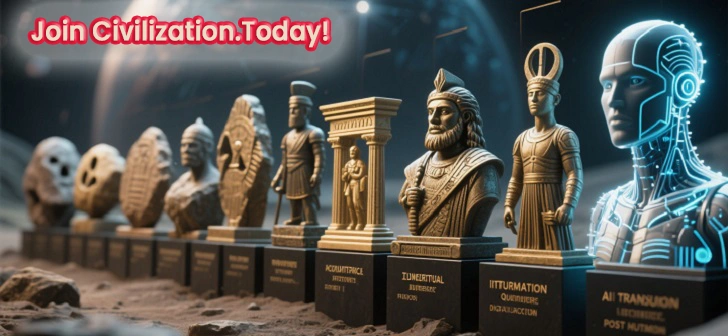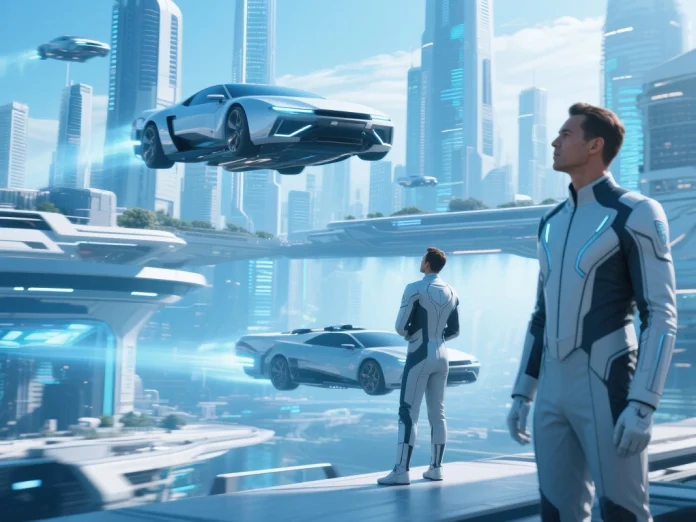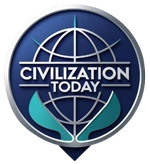The future of civilization has always been a topic of fascination, speculation, and—more recently—urgent concern. As humanity races into an era defined by rapid technological advances, environmental crises, and unprecedented global interconnectedness, one question looms large: Are we truly heading in the right direction, or are we hurtling toward a self-inflicted collapse?
From climate change to artificial intelligence, from social fragmentation to space exploration, the choices we make in the next few decades will determine whether humanity thrives or struggles for survival. Let’s take a deep dive into the trends shaping the future, the warning signs we can’t ignore, and the opportunities that could redefine what it means to be a global civilization.
The Technological Tipping Point
Technology is the most powerful driver of change in the modern world. Artificial intelligence, quantum computing, biotechnology, and renewable energy systems are already reshaping our daily lives. While these innovations promise incredible benefits—curing diseases, solving energy shortages, and expanding human potential—they also introduce new risks.
- AI and Automation
The rise of autonomous systems could create unprecedented productivity gains. But without ethical governance, AI could also deepen inequality, displace millions of jobs, and even threaten human autonomy. - Biotech Breakthroughs
Advances in genetic engineering and synthetic biology could help us eradicate illnesses. But they also raise fears about biosecurity and the ethics of altering life itself. - The Internet of Everything
While hyperconnectivity can unite people globally, it also opens the door to mass surveillance, misinformation, and cyberwarfare.
The future of civilization depends on whether we can harness technology as a tool for collective progress—or allow it to become a weapon of division and control.
The Climate Clock is Ticking
Civilizations rise and fall with their environment. Right now, our planet is sending clear distress signals: rising global temperatures, melting ice caps, devastating wildfires, and unpredictable weather patterns. Scientists warn that without urgent action, climate change could destabilize food supplies, flood coastal cities, and trigger mass migrations.
- The Danger: By 2050, hundreds of millions of people could be displaced by climate-related disasters.
- The Opportunity: Transitioning to clean energy, restoring ecosystems, and investing in sustainable agriculture could create a more resilient future.
In the grand narrative of the future of civilization, climate action is the chapter that will decide whether we survive or succumb to the mistakes of our industrial past.
Social Fragmentation vs. Global Unity
While technology connects us more than ever, societies are becoming increasingly polarized. Political divisions, cultural conflicts, and growing mistrust in institutions threaten global cooperation.
- The Risk: In a hyperconnected but ideologically fragmented world, misinformation can spread faster than truth, eroding democracy and social stability.
- The Solution: Promoting media literacy, fostering cross-cultural dialogue, and building inclusive governance systems can strengthen the social fabric.
The future of civilization will be shaped as much by our ability to get along as by our ability to innovate.
Economic Inequality: The Silent Crisis
Wealth gaps are widening between nations and within societies. While some regions enjoy unprecedented prosperity, billions still live in poverty. Automation and AI risk making this divide even larger if economic systems fail to adapt.
- Problem: Concentrated wealth often translates into concentrated power, creating feedback loops of inequality.
- Path Forward: Implementing fair taxation, universal basic income experiments, and global wealth redistribution mechanisms could level the playing field.
In the future of civilization, economic justice might be the difference between a golden age and a societal collapse.
Space: Humanity’s Next Chapter?
If Earth’s resources become overstrained, will space be our salvation? Private companies and national space agencies are racing to colonize Mars, mine asteroids, and build space habitats.
- The Dream: Expanding into space could spark a new era of exploration, innovation, and unity.
- The Reality: Without equitable access, space could become yet another frontier for geopolitical rivalry and corporate exploitation.
The future of civilization might not be confined to one planet, but whether we thrive beyond Earth will depend on the lessons we learn here.
Ethics and Governance in a Changing World
As the pace of change accelerates, ethics and governance structures must evolve to keep up. Laws designed for the 20th century often fail to address 21st-century challenges like AI rights, genetic privacy, or cyberwarfare.
- Challenge: Balancing innovation with safeguards without stifling progress.
- Opportunity: Building flexible, forward-thinking institutions that prioritize long-term human well-being over short-term gain.
If the future of civilization is to be sustainable, governance must be as innovative as the technologies it regulates.
The Cultural Renaissance or Cultural Decline
In times of uncertainty, civilizations often turn to art, philosophy, and storytelling for guidance. We are living in a cultural paradox: globalization spreads ideas faster than ever, yet unique traditions risk being erased.
- The Threat: Homogenization of culture can lead to loss of identity and heritage.
- The Hope: A digital renaissance could allow every culture to thrive, share, and inspire.
In the future of civilization, culture may be our moral compass, helping us remember what it means to be human.
Are We on the Right Path?
Predicting the trajectory of humanity is like trying to steer a ship through a storm while building the compass at the same time. We are at a crossroads, and the signs are mixed.
- Reasons for Optimism: Scientific breakthroughs, global awareness of shared challenges, and the rise of youth-led movements for climate, justice, and equality.
- Reasons for Concern: Political instability, environmental degradation, and the misuse of emerging technologies.
The truth is, the future of civilization is not predetermined. It will be the sum of billions of individual and collective choices.
A Call to Action
If we want a thriving, equitable, and sustainable future, here are some urgent steps humanity can take:
- Invest in Sustainable Technology. Prioritize clean energy, green infrastructure, and ethical AI.
- Strengthen Global Governance. Create systems capable of addressing global crises with speed and fairness.
- Promote Education and Critical Thinking. Equip future generations to navigate complex, fast-changing realities.
- Foster Cultural Respect. Celebrate diversity while building shared global values.
- Think Beyond Borders. Remember that planetary challenges require planetary solutions.
Conclusion: Writing the Next Chapter
The future of civilization is both a challenge and an opportunity. We could witness an era of unprecedented prosperity, knowledge, and interconnectedness—or one of conflict, scarcity, and decline.
The path we take will depend not on fate, but on our collective vision, courage, and determination. We are the authors of this story, and the pen is in our hands. The question is not just whether we are on the right path, but whether we are brave enough to create it.
The choice is ours. The time is now. The world is watching.



